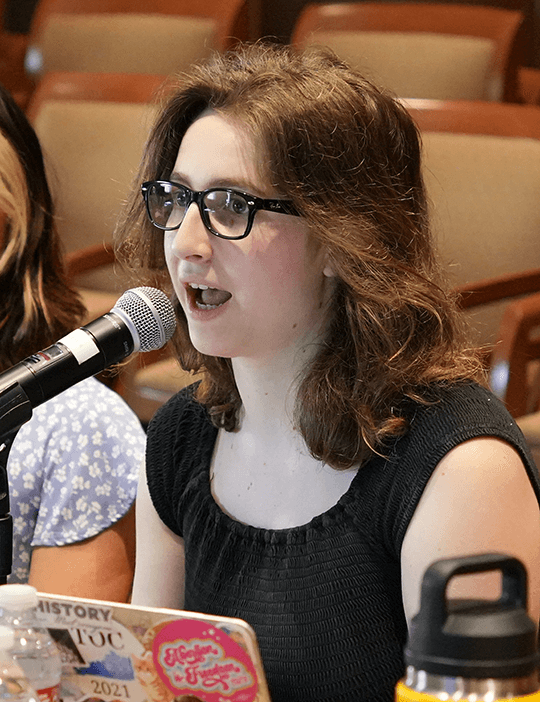
Sarah Davidson, a rising senior at Rice University, is making strides in the fields of history and anthropology through her research on Hidroituango, Colombia’s largest hydroelectric dam. Majoring in history and minoring in anthropology and poverty, justice and human capabilities, Davidson’s project sheds light on the dam’s impact on local communities and Colombia’s national identity. Her research, facilitated by the Elizabeth Lee Moody Undergraduate Research Fellowship in the Humanities and the Arts, utilizes features of ArcGIS Story Maps such as maps, timelines, videos and links to create a narrative about the creation of this controversial infrastructure project.
Davidson’s academic path reflects a deepening passion for history that emerged during her high school years. Initially majoring in social policy analysis with an interest in political science, she said she soon realized her true calling lay in historical research.
“I ended up majoring in history, and I think it really surprised me how much I enjoyed it and how much I fell in love with it,” Davidson said.

The Moody Fellowship provided a unique opportunity for her to delve into historical research. Offered by the School of Humanities, it’s a competitive program designed to support innovative research and creative projects. With a summer stipend of $3,500, the fellowship enables students to pursue independent research or internships, fostering a community of scholars through monthly meetings with faculty, workshops and interactions with visiting academics.
“I learned a lot through having lunches with other humanities students, talking to the humanities advisory board and meeting with professors,” Davidson said.
Davidson’s research journey began with a proposal developed in collaboration with assistant history professor Laura Correa Ochoa, aligning her interests in history and human rights with the fellowship’s mission to promote critical exploration within the humanities. Moody Fellows are expected to dedicate approximately 200 hours to their projects, culminating in public presentations or digital exhibitions.
“Sarah is such a determined and curious student, so open to the world and to learning new things,” Correa Ochoa said. “She cares deeply about environmental issues, something that came through in her research.”
Davidson’s research focuses on Hidroituango, a hydroelectric dam on the Cauca River in Colombia that has been a subject of national and international controversy. Promoted as a symbol of Colombia’s modernization and a solution to the country’s energy needs, the $4.5 billion project has faced significant technical failures, including landslides blocking an auxiliary tunnel in 2018 that eventually led to about 25,000 people being evacuated downstream.
“This grand plan was never concretely thought out,” Davidson said. “It caused mass destruction in the communities that it affected. It flooded a bunch of communities, displacing people from their homes and costing millions of dollars in damage.”
The fellowship’s funding allowed Davidson to access archival materials in Colombia while she was there for an unrelated summer internship.

“I was able to use that money to visit many of the archives there and get transportation to those archives,” Davidson said, emphasizing how instrumental those primary sources were for her research. “Access to newspaper documents costs money as well.”
With its open-ended structure, the fellowship also enabled Davidson to choose her research format, opting for an ArcGIS story map instead of a traditional essay. This innovative approach allowed her to visualize the geographical and social impact of the Hidroituango dam, providing a powerful tool for understanding the project’s far-reaching consequences. Davidson was first introduced to ArcGIS by Alida Metcalf, the Harris Masterson Jr. Professor of History, through Metcalf’s imagineRio project.
“That was really interesting because the turn toward digital humanities is a big thing right now,” Davidson said. “That helped me learn all these tools and really conceptualize what I wanted to do.”
“As she moves forward, I hope she continues to explore these issues deeply, drawing connections across time and place,” said Correa Ochoa. “And I hope this knowledge and experience can offer some inspiration and guidance in her future endeavors.”
Davidson added that her work with the Moody Fellowship has not only advanced her research skills but also shaped her future aspirations.
“I’m going to spend my senior year continuing to develop this project,” said Davidson, whose interests lie in environmental nonprofits and international development, areas where she said she hopes to make a meaningful impact. “I’m probably not going to pursue a Ph.D. in history, but this is a project that I would want to work on in the future.”
Learn more about the Moody Fellowship here.

